第84章 CHAPTER XVII RECOLLECTIONS OF CHILDHOOD(2)
'Hullo!' said I to myself. 'Animals have names, just like ourselves. Who named them? What are all my different acquaintances in the woods and meadows called? What does Saxicola mean? '
Years passed and Latin taught me that Saxicola means an inhabitant of the rocks. My bird, in fact, was flying from one rocky point to the other while I lay in ecstasy before its eggs; its house, its nest, had the rim of a large stone for a roof. Further knowledge gleaned from books taught me that the lover of stony hillsides is also called the Motteux, or clodhopper, because, in the plowing season, she flies from clod to clod, inspecting the furrows rich in unearthed grubworms. Lastly, I came upon the Provencal expression Cul-blanc, which is also a picturesque term, suggesting the patch on the bird's rump which spreads out like a white butterfly flitting over the fields.
Thus did the vocabulary come into being that would one day allow me to greet by their real names the thousand actors on the stage of the fields, the thousand little flowers that smile at us from the wayside. The word which the curate had spoken without attaching the least importance to it revealed a world to me, the world of plants and animals designated by their real names. To the future must belong the task of deciphering some pages of the immense lexicon; for today I will content myself with remembering the Saxicola, or stonechat.
On the west, my village crumbles into an avalanche of garden patches, in which plums and apples ripen. Low bulging walls, blackened with the stains of lichens and mosses, support the terraces. The brook runs at the foot of the slope. It can be cleared almost everywhere at a bound. In the wider parts, flat stones standing out of the water serve as a foot bridge. There is no such thing as a whirlpool, the terror of mothers when the children are away; it is nowhere more than knee deep. Dear little brook, so tranquil, cool and clear, I have seen majestic rivers since, I have seen the boundless sea; but nothing in my memories equals your modest falls. About you clings all the hallowed pleasure of my first impressions.
A miller has bethought him of putting the brook, which used to flow so gaily through the fields, to work. Halfway up the slope, a watercourse, economizing the gradient, diverts part of the water and conducts it into a large reservoir, which supplies the mill wheels with motor power. This basin stands beside a frequented path and is walled off at the end.
One day, hoisting myself on a playfellow's shoulders, I looked over the melancholy wall, all bearded with ferns. I saw bottomless stagnant waters, covered with slimy green. In the gaps in the sticky carpet, a sort of dumpy, black-and-yellow reptile was lazily swimming. Today, I should call it a salamander; at that time, it appeared to me the offspring of the serpent and the dragon, of whom we were told such bloodcurdling tales when we sat up at night.
Hoo! I've seen enough: let's get down again, quick!
The brook runs below. Alders and ash, bending forward on either bank, mingle their branches and form a verdant arch. At their feet, behind a porch of great twisted roots, are watery caverns prolonged by gloomy corridors. On the threshold of these fastnesses shimmers a glint of sunshine, cut into ovals by the leafy sieve above.
This is the haunt of the red-necktied minnows. Come along very gently, lie flat on the ground and look. What pretty little fish they are, with their scarlet throats! Clustering side by side, with their heads turned against the stream, they puff their cheeks out and in, rinsing their mouths incessantly. To keep their stationary position in the running water, they need naught but a slight quiver of their tail and of the fin on their back. A leaf falls from the tree. Whoosh! The whole troop has disappeared.
On the other side of the brook is a spinney of beeches, with smooth, straight trunks, like pillars. In their majestic, shady branches sit chattering crows, drawing from their wings old feathers replaced by new. The ground is padded with moss. At one's first step on the downy carpet, the eye is caught by a mushroom, not yet full-spread and looking like an egg dropped there by some vagrant hen. It is the first that I have picked, the first that have I turned round and round in my fingers, inquiring into its structure with that vague curiosity which is the first awakening of observation.
Soon, I find others, differing in size, shape and color. It is a real treat for my prentice eyes. Some are fashioned like bells, like extinguishers, like cups; some are drawn out into spindles, hollowed into funnels, rounded into hemispheres. I come upon some that are broken and are weeping milky tears; I step on some that, instantly, become tinged with blue; I see some big ones that are crumbling into rot and swarming with worms. Others, shaped like pears, are dry and open at the top with a round hole, a sort of chimney whence a whiff of smoke escapes when I prod their under side with my finger. These are the most curious. I fill my pockets with them to make them smoke at my leisure, until I exhaust the contents, which are at last reduced to a kind of tinder.